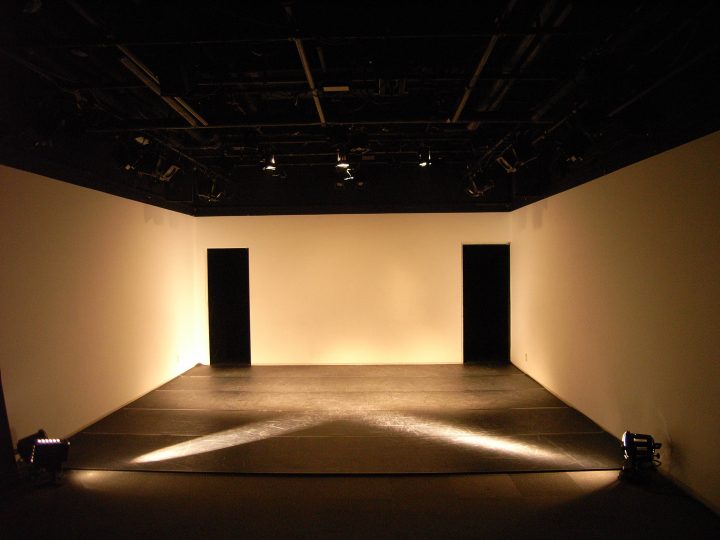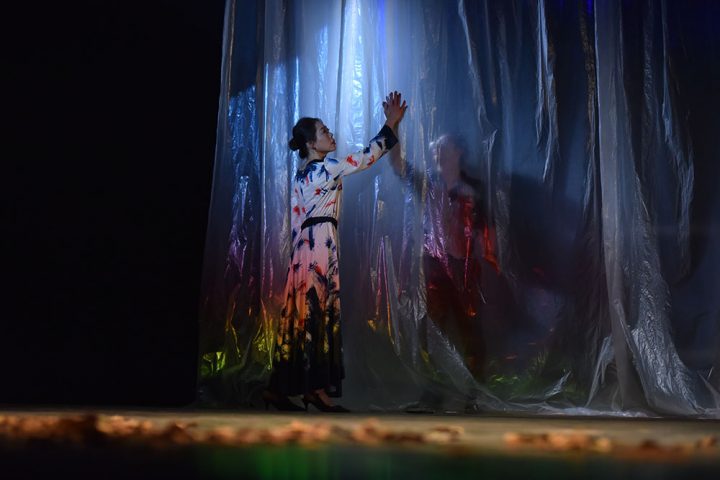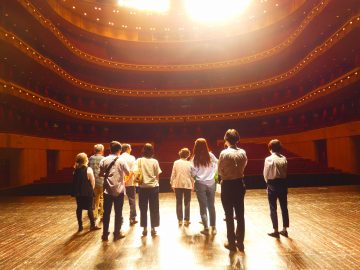Nurturing musical actors and bringing Kanagawa to Broadway: An interview with Kensuke Yokouchi, president of Magcal Performing Arts Academy
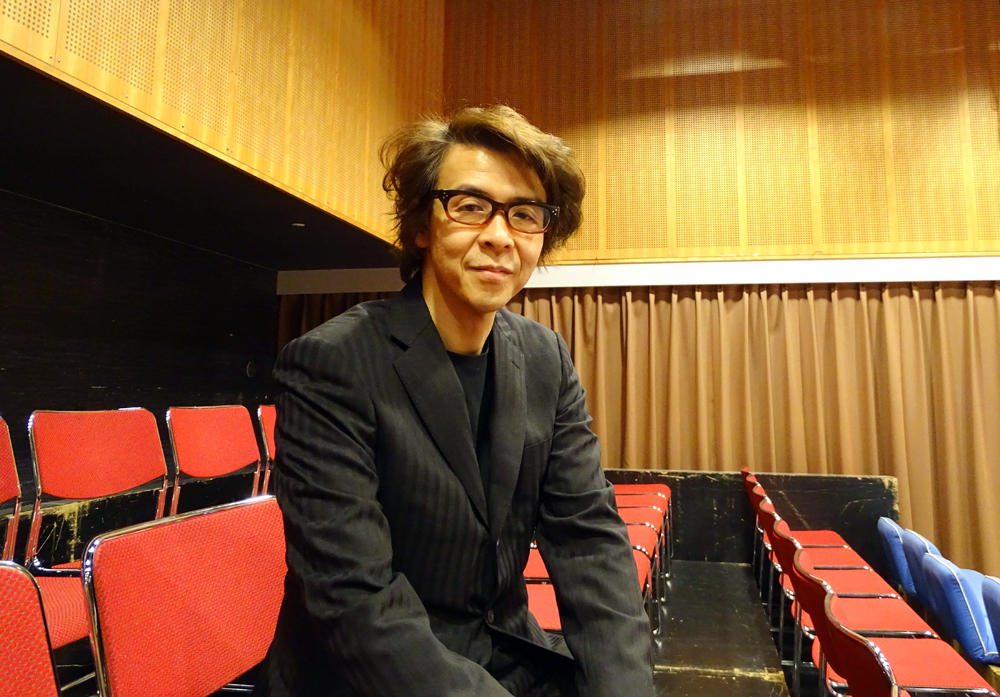
Now in its third year, the Academy moves to a new stage
I want to develop people and theaters through the creation of works.
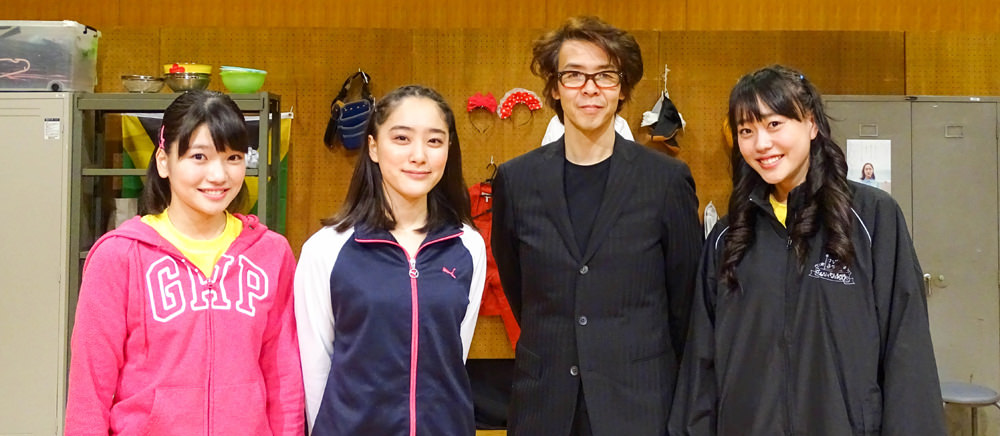
More advanced instruction to develop individuality and sensibility
--Magcal Performing Arts Academy opened in October 2014. Now that about a year and a half has passed, what kind of response do you feel?
Yokouchi : The number of students has decreased since the school first opened (laughs). Steady lessons are hard work, and continuing to train doesn't necessarily mean you'll become a star. It must be tough to continue lessons under those circumstances. But this academy takes "developing people" very seriously. I think the people who have been training for the past year and a half have definitely grown.
--What do you keep in mind when training musical actors?
Yokouchi : There is no difference in acting whether it is a child or an adult. However, there are many inexperienced people in this academy, and there are many things they do not know. Therefore, I tried to teach them carefully from the beginning. Normally, I would not explain so much before starting directing, but I think of it as training for myself, so I teach as carefully as possible.
--The goal of this academy is to nurture performing artists who can work professionally. What are your prospects for this?
Yokouchi : Of course, I don't think that everyone can become a professional, but I hope that at least some of them will become real professionals. I want them to get that opportunity here. However, since they have decided to make things here, the way we train them will probably change in the future.
--What does that mean?
Yokouchi : In August of this year, we plan to perform a musical that is a major revision of "Part-time Show," which was performed at the April results presentation. Next year, we are also thinking of creating an original new work. When it comes to manufacturing, we need to properly train reliable personnel. To do that, it is not enough to just make the students average like in school. Unlike school presentations, each student's individuality and charisma are required. Moreover, musicals are show-like entertainment that is different from ordinary plays. It is not enough to simply do it seriously like in school. Individuality and sensitivity will be required more than ever before.
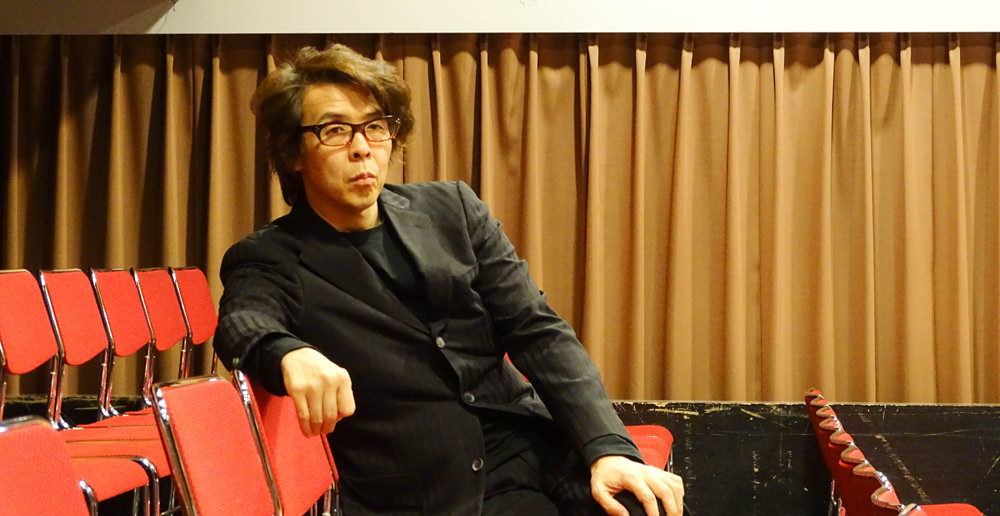
--But it's difficult to develop individuality and sensibility, isn't it? Will your teaching methods change?
Yokouchi : It is important for us instructors to nurture the good points so as not to crush individuality. The rest is competition and differentiation. At the 2015 results presentation, everyone was given a chance to perform. However, I think that in the future, the academy should incorporate something closer to professional logic. When creating a work, the people who shine will be placed in the middle, and those who do not shine enough will support the back. This may be considered discrimination, but it is inevitable in the world of theater. It is necessary to tolerate such differences, and the guts to "change the order" are also required. Until now, everyone was treated equally, but I think that from now on, competition will be gradually introduced. Teaching will become more advanced, and students will be asked to do more difficult things than ever before.
In order to respond to this great opportunity, I want to sow the seeds and make them bloom.
--Listening to you talk, it seems that you are thinking about running the academy from a long-term perspective.
Yokouchi : It actually takes time. If you just want to create an interesting piece, you can just gather the actors. But this academy is like trying to grow onions to make curry rice (laughs). Of course it takes time. That said, I feel the need to get results quickly every day.
--Auditions for the 2016 class will be held soon. What do you hope for the new participants?
Yokouchi : I hope they have ambition. Opportunities like this don't come around very often. I've had more interactions with government officials over the past 20 years, but this is the first time in my 35-plus years of acting that I've met a governor who is so supportive of performing arts. I feel like this is a once-in-a-lifetime encounter. We've been given this opportunity, so we need to sow the seeds and make sure they bloom.
--It's a great environment for people who aspire to be musical actors or actors.
Yokouchi : Yes, that's true. But please don't think that this place will be here forever. There is a good chance that it will disappear. In fact, the Youth Center was once on the verge of becoming a forgotten facility. More than 30 years ago, many masterpieces were performed in this hall, and high school students could watch them at a reasonable price. I myself decided to go into theater because of a play I saw in this hall. But that was a long time ago. Until Governor Kuroiwa took office, there were fewer opportunities for plays to be performed. Now, they are trying to regain their former glory. This encounter is a great opportunity. Various entertainment is created in Tokyo, and Tokyo is considered the center for both television and theater. However, Kanagawa Prefecture is now trying to make this area a Broadway, aiming to make Kanagawa a place full of musicals. Lucky Ikeda and Keiko Fukazawa, who are usually active in Tokyo, also serve as lecturers at this academy and are working on creating things based in Kanagawa Prefecture. It's just like a magnet, attracting more and more people. All of the participants in the Academy have a unique sensitivity that has drawn them to this place. We have high hopes for your sharp sensibilities.
-What kind of conversations have you had with the other instructors about the future?
Yokouchi : We're talking about creating something that the Tokyo office can't create. And then we'll give them careful lessons. Because the government is involved in this academy, we can train people from a slightly different perspective than business. If we think about business, we'll probably put outside stars at the center of the performances in order to recoup as quickly as possible. A musical with handsome guys and beautiful girls will draw a larger audience. But this project would be meaningless if the members trained at the academy weren't at the center. The academy's strength is that it can take time to develop individuality.
--From the students' perspective, there is also the benefit of having their abilities properly examined.
Yokouchi : Yes. There are many beginners, but their potential for growth is remarkable. The three who were the main performers at the 2015 results presentation were completely lacking in strength last year, unable to even speak. I was surprised to see how strong they have become in just a year and a half. There are young people in their 20s in the theater company, but high school students grow even faster. If they are motivated, even complete beginners can grow rapidly. Moreover, because they have peers, they can improve their skills while competing with each other. Moreover, this academy is still in its early stages. It is difficult to break into an established place, but now, if you have the guts, you can work together to build it. Even beginners should be able to find a place to shine and a place to belong.
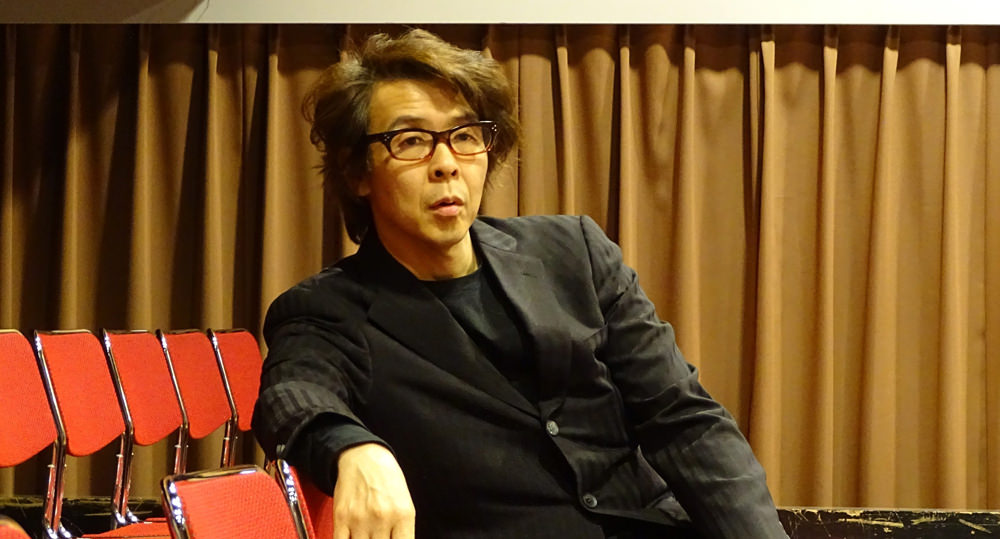
--Mr. Yokouchi, you also direct at the Tobiraza Theatre Company. What do you think is the difference between Tobiraza and this academy?
Yokouchi : Tobira-za is a play, but this is a musical. With musicals, practice never fails you. The more you practice, the more your technique improves. Of course, acting requires technique, but there's too much that doesn't. If the people involved aren't interesting, the lines won't be interesting, so we sometimes say things like, "Hey, why don't you go have a drink?" or "Why don't you go out and have some more fun?" (laughs). On the other hand, with musicals, if you work hard, you get results in proportion to your efforts. There are clear examples for singing and dancing, and goals are set. It's good for education.
The goal is to create a public theater that offers seasonal entertainment
--At the 2015 results presentation, you performed the Academy version of "Baito Show." Please tell us more about this performance.
Yokouchi : It is based on an original musical that was performed at Tobira-za. It combines existing songs with original songs, and shows scenes of part-time work in an omnibus format. I think it has become a performance that shows them as they are.
--A performance of "Part-Time Show: Youth Edition" is also scheduled for August.
Yokouchi : This Academy Award-winning version has been completely revised and will be performed as a full-scale production. However, the concept is the same as the Academy Award-winning version. It is packed with part-time work scenes, human relationships, youth worries, dreams, hopes, and failures. Next year, I would also like to create an original new musical.
-Please tell us about your future prospects.
Yokouchi : The governor has requested that we increase the number of performances and productions. He has said that he wants to have something being performed at the Youth Center and that he wants to show it to foreigners. We don't have such a rare opportunity, so we're going to take it on with determination. There's no way we can't get on this wave. I feel that we need to tell the people of the prefecture as soon as possible that we are serious about this.
――What is your ideal vision for this human resource development project?
Yokouchi : I want to increase the musical repertoire at the Youth Center. Ideally, we would have a variety of performances for children, young people, and the general public, and we would be able to perform them whenever we receive a request. The theater company throws away the props after each performance, but here we would like to prepare props that can be used for a long time and cover the costs by performing multiple times. We would like to have multiple members play each role so that we can have a long run. Don't you think it's a waste to have such a wonderful theater, but not have a repertoire that can be performed there? In Europe and the United States, each theater has its own repertoire, such as "We perform this opera in the winter" or "You can see this ballet here." Japan also needs a public theater that can be enjoyed every season. We would like to challenge ourselves to take on initiatives that only a public theater can do and create a new culture.
